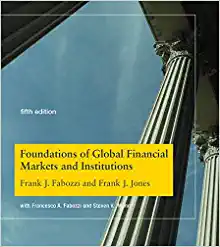Question
2. Government Funding (35 pts) Suppose we have a two period consumption savings model, household lifetime utility is given by the following function U(c1, c2)
2. Government Funding (35 pts) Suppose we have a two period consumption savings model, household lifetime utility is given by the following function U(c1, c2) = c 4 1 4 + c 4 2 4 Where c1, c2 are consumption in time 1 and time 2 respectively and 0 < < 1. In addition the individual is assumed to have some endowment in time period 1, 2 given by y1, y2. Furthermore let's assume the agents can save in each period which is given by st where st is the savings of the household in period t. The savings will return (1 + r) units of the consumption good in the next period. Finally we are going to add in a government who levies a lump sum tax in each period Tt, where Tt is the amount of the tax in period t. The government utilizes these taxes to pay for government spending which will be represented by Gt, in each period. This implies that the household's budget constraints in each period can be given as: c1 + s1 = y1 T1 c2 + s2 = y2 + (1 + r)s1 T2 For now assume the government must balance it's budget each period so Gt = Tt
(a) (6 pts) Write out the lifetime budget constraint of the household?
(b) (3 pts) What will we force the households choice of the savings be in period 2 and why? Ideally what would the household like to do?
(c) (4 pts) Set up the lagrangean and and first order conditions.
(d) (6 pts) Combine the first order conditions to obtain a set of Euler equations relating consumption in each period to each other.
(e) (6 pts) Solve for optimal consumption in each of the periods given the endowments, taxes and the interest rate. Solve for optimum savings in period 1 (This will be a little dierent than before)
(f) (6 pts) How does an increase in government spending in period 1 impact consumption in both periods? How does it impact savings? (To make this simple you may assume government spending and therefore taxes in period 1 both increase by one unit) Explain why?
(g) (3 pts) For this question suppose instead of having to balance their budget each period the government only has to balance their lifetime budget constraint so that G1 + G2 1 + r = T1 + T2 (1 + r)
The implication of this is that the government can also borrow and lend so long as they eventually pay back any government spending, with interest. As in (f), suppose that the government decides to increase government spending in period 1. This time though they instead decide to increase taxes in period 2 to pay for them. (to make this simple assume government spending in period 1 increases by 1 unit, and therefore taxes in period 2 have to increase by 1+r ). How does this impact consumption in period 1? Will this be different than what occurs in part (f)? What about savings in period 1, how has this changed relative to before?
Step by Step Solution
There are 3 Steps involved in it
Step: 1

Get Instant Access to Expert-Tailored Solutions
See step-by-step solutions with expert insights and AI powered tools for academic success
Step: 2

Step: 3

Ace Your Homework with AI
Get the answers you need in no time with our AI-driven, step-by-step assistance
Get Started


